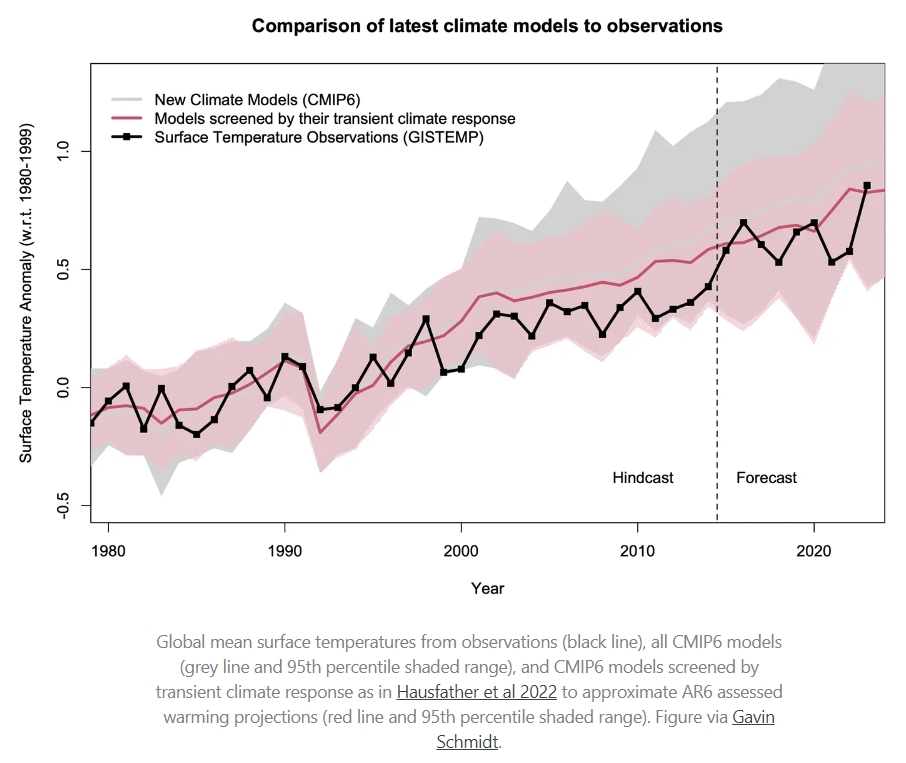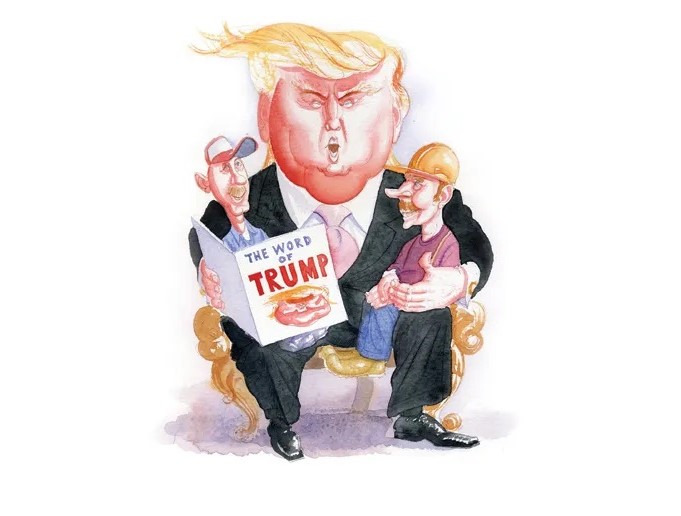The New Republic published a great analysis piece on the what the USSC did to the insurrection clause of the 14th Amendment. Here are some key bits of it:
The Supreme Court Butchered the Disqualification Clause
It was clear at oral argument last month that the justices, for whatever reason, did not want to enforce the disqualification clause against Trump. What they struggled to articulate during that session was a reason why it shouldn’t be enforced against him. The disqualification clause’s language—the very constitutional text that they are charged with interpreting—is categorical.
[The USSC argued] “there is little reason to think that these [election] Clauses implicitly authorize the states to enforce Section 3 against federal officeholders and candidates,” the court wrote. “Granting the states that authority would invert the Fourteenth Amendment’s rebalancing of federal and state power. There is actually no reason to think otherwise. The Fourteenth Amendment’s drafters operated from the assumption that states had the power to decide a federal candidate’s qualifications. If they wanted to say differently, they would have done so.
They argued that the Fourteenth Amendment’s drafters did just that by including an enforcement clause at the end of the amendment. .... The [14th Amendment states that] Congress shall have power to enforce, by appropriate legislation, the provisions of this article. .... As a result, such state enforcement might be argued to sweep more broadly than congressional enforcement could under our precedents. But the notion that the Constitution grants the States freer rein than Congress to decide how Section 3 should be enforced with respect to federal offices is simply implausible.”
This interpretation is nonsensical on its face. While the enactment clause allows Congress to enforce other provisions in the amendment, it makes literally no sense if applied to the disqualification clause. That clause already provided a very explicit role for Congress to play in the process: Lawmakers can, by two-thirds votes in each chamber, lift disqualifications that are automatically imposed. To graft the enforcement clause on top of it as well would lead to clearly absurd results, as the court’s three liberals pointed out in their concurring opinion.
The court’s reference to “nullify[ing] the votes of millions and chang[ing] the election result” by disqualifying presidential candidates is utterly contemptible. If Arnold Schwartzenegger ran for president this year despite being born in Austria, nobody would claim that any of his supporters’ votes were nullified or the election results would be changed when states rightly kept him off the ballot.
The article goes on at length with other criticisms, one of which is that the USSC caved in to red state threats to thrown Biden off the ballot if the USSC threw DJT off. The USSC’s argument that federal candidates and officeholders can only be disqualified if Congress passes a law to affirmatively enforce the clause is blithering nonsense. An existing federal law, 18 USC §2383 reads as follows:
Whoever incites, sets on foot, assists, or engages in any rebellion or insurrection against the authority of the United States or the laws thereof, or gives aid or comfort thereto, shall be fined under this title or imprisoned not more than ten years, or both; and shall be incapable of holding any office under the United States.
Unless I am mistaken, that law disqualified DJT. If that is correct, this USSC decision nullifies that existing law as unconstitutional because for each insurrection or rebellion, congress has to say it applies to those involved. In essence, the USSC decision sanctions insurrection. The original purpose of the disqualification clause was to disqualify Robert E. Lee without indicting him for insurrection. That was a political calculation that 3/4ths of the states ratified in the 14th Amendment. In other words, the political branch decided a political question. Now the USSC is saying, ‘nah, not really’, creating a political uproar in the process.
Assuming all the foregoing analysis is basically correct, this is well beyond nuts. This is the face of arbitrary authoritarian rule of the powerful, not the rule of law. And this time, three clueless Dems on the court went along with it.
_____________________________________________________________
_____________________________________________________________
The AP reports about peace talks:
The latest talks on Gaza have ended with no breakthrough, officials say. -- The United States, Qatar and Egypt have spent weeks trying to broker an agreement in which Hamas would release up to 40 hostages in return for a monthlong cease-fire, the release of some Palestinian prisoners and an influx of aid to address the
humanitarian catastrophe in the isolated territory.
No surprise there.
_____________________________________________________________
_____________________________________________________________
:
Maddening New Poll: Voters Are Unaware of Trump “Dictator” Threats -- A small percentage of voters surveyed are familiar with Trump’s most overt authoritarian outbursts. Some new polling from a top Democratic pollster finds mixed news for Team Biden on [the defense of democracy messaging] front: Large swaths of voters appear to have little awareness of some of Trump’s clearest statements of hostility to democracy and intent to impose authoritarian rule in a second term, from his
vow to be “dictator for one day” to his
vague threat to enact “termination” of provisions in the Constitution.
Once again, Dems have crappy messaging. No surprise there either.
_____________________________________________________________
_____________________________________________________________
An article that Salon published discusses the 2024 book,
White Rural Rage: The Threat to Democracy, by Paul Waldman and Thomas Schaller. I discussed that book here recently. In essence, Waldman and Shaller reject the common narrative that DJT supporters are mindless children. Instead, they argue that they are adults and are responsible for their actions and false beliefs. They hold rural white voters accountable for their choices, and for “willfully gobbling down right-wing propaganda.”
The article recalls and echoes basically the same critique that Kevin Williamson leveled at rural white voters
in March of 2016.
I posted about that essay in 2021. Williamson called on rural Americans to take responsibility for themselves, by asking harder questions about exactly what would it take to improve their communities. Williamson’s criticisms were blunt and harsh. His essay provoked a firestorm of ferocious criticisms from the radical right.[1]
The thing is though, both Williamson and Waldman and Shaller were, and are still are, exactly right. Biden has tried to help rural areas and in return most rural voters see him as a worse than evil monster tyrant and treasonous criminal. That rural narrative is pure bullshit. They complain and whine and slander, but they do not offer solutions or even engage in good will. Most are arrogant, insulting and a deadly serious threat to democracy.
It is reasoning like this that over a period of a couple of years after DJT’s election led me to assign more and more responsibility, blame actually, to rank and file TTKP voters and independents who supported DJT. My assessment has remained unchanged for at least a year, if I recall right:
TTKP elites, propagandists and major donors get ~55% of the blame, or credit if one likes corruption and tyranny
TTKP rank and file voters get ~45% of the blame
TTKP: Trump Tyranny & Kleptocracy Party, formerly the Republican Party
Footnote:
1. Here is some of Williamson’s blunt 2016 essay. It is entitled The Father-Fürher:
It is immoral because it perpetuates a lie: that the white working class that finds itself attracted to Trump has been victimized by outside forces. It hasn’t. The white middle class may like the idea of Trump as a giant pulsing humanoid middle finger held up in the face of the Cathedral, they may sing hymns to Trump the destroyer and whisper darkly about “globalists” and — odious, stupid term — “the Establishment,” but nobody did this to them. They failed themselves.
If you spend time in hardscrabble, white upstate New York, or eastern Kentucky, or my own native West Texas, and you take an honest look at the welfare dependency, the drug and alcohol addiction, the family anarchy — which is to say, the whelping of human children with all the respect and wisdom of a stray dog — you will come to an awful realization. It wasn’t Beijing. It wasn’t even Washington, as bad as Washington can be. It wasn’t immigrants from Mexico, excessive and problematic as our current immigration levels are. It wasn’t any of that.
Nothing happened to them. There wasn’t some awful disaster. There wasn’t a war or a famine or a plague or a foreign occupation. Even the economic changes of the past few decades do very little to explain the dysfunction and negligence — and the incomprehensible malice — of poor white America. So the gypsum business in Garbutt ain’t what it used to be. There is more to life in the 21st century than wallboard and cheap sentimentality about how the Man closed the factories down.
The truth about these dysfunctional, downscale communities is that they deserve to die.


:no_upscale()/cdn.vox-cdn.com/uploads/chorus_asset/file/22325515/Vy1rP___2_.png)

